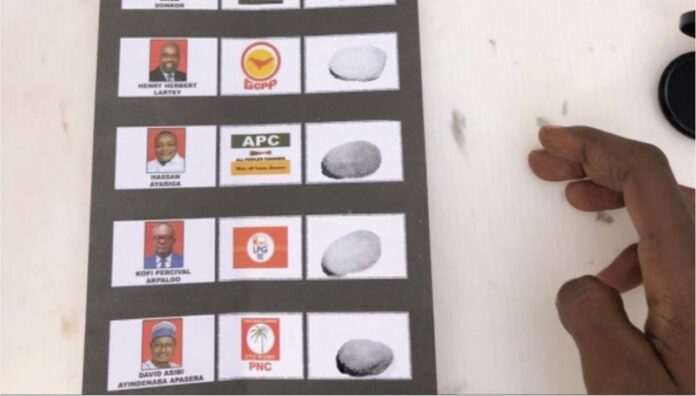As Ghana heads into another general election in December 2024, the stakes have never been higher.
This historic contest, set between key contenders—the sitting Vice President and a former President—captures the essence of Ghana’s maturing democracy.
The intensity of the campaign, with its heightened tension and political undercurrents, is palpable.
Yet, as the nation braces itself for the showdown, the integrity of the electoral process takes center stage, especially the journey of that humble but powerful piece of paper—the ballot.
Recent events have thrust the electoral process into the limelight, as the opposition National Democratic Congress (NDC) raised concerns over the accuracy of the voter register.
The party alleged multiple infractions observed during the recent voter verification exercise, calling for a comprehensive audit.
In response, the Electoral Commission (EC) assured the public that these issues had been resolved and invited the NDC to present further evidence at an Inter-Party Advisory Committee (IPAC) meeting, held at the EC’s office on October 1, 2024.
For the first time in the history of IPAC, this meeting was telecast live, marking a significant step toward transparency and accountability in Ghana’s democratic journey.
The EC subsequently announced that it would commence the printing of notices of poll and ballot papers on Friday, October 11, 2024. Mr. Samuel Tettey, the Deputy Chairman in charge of Operations at the EC, disclosed this in a statement released on Wednesday, October 9.
This step is a critical milestone in the electoral process, as the printing of ballot papers marks the formal start of preparations for the election itself.
On the same day, the NDC, in a letter addressed to the EC, expressed its position regarding the upcoming printing of ballot papers.
While the NDC stated that it had no fundamental reservations with the EC’s decision to proceed with the printing, it issued a clear demand: the EC must provide detailed statistics to justify the number of ballot papers printed for each constituency.
Providing these statistics, as demanded by the NDC, would serve as a proactive measure to address any concerns and further bolster public confidence in the transparency of election preparations.
However, amid these preparations, a different but equally critical challenge confronts the electoral process—the spread of misinformation and fake news.
In particular, disinformation about the ballot’s journey, from the moment it is printed to the moment it is counted, poses a threat to the credibility of the election.
Stories questioning the integrity of the ballot, alleging tampering during printing or transportation, or suggesting ballot stuffing at polling stations, spread like wildfire on social media. Such narratives, often rooted in partisan interests, have the potential to undermine public trust in the electoral process.
The birth of the ballot begins in the print house, a process overseen by representatives from all political parties or candidates to ensure fairness and transparency.
Each ballot paper is printed under tight security, with the entire process documented and monitored.
Once printed, the ballot papers are sealed with the seals of all political party agents present, an assurance that no tampering has taken place.
This marks the first layer of security, designed to build trust among all stakeholders.


